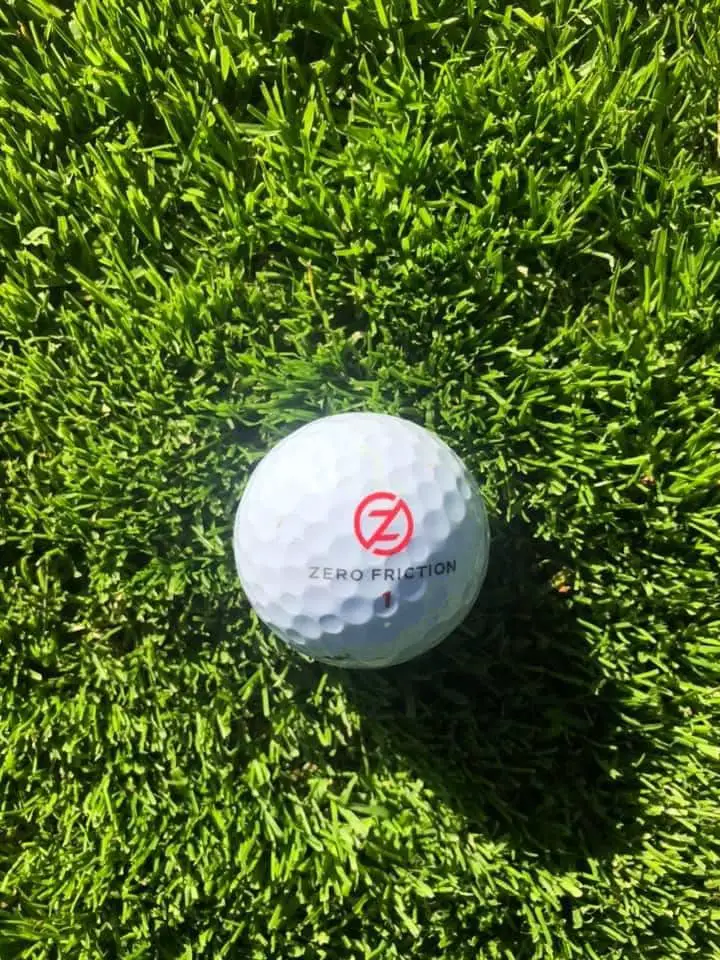Golf courses are celebrated for their lush green lawns and picturesque landscapes. While, yes, they enjoy expert landscaping and lawn care services, they also feature certain types of grass that are ideally suited for the game as well as the region where the golf course is located. Here, we explore the types of grasses that golf courses favor.
Cool Season Grass
Cool-season grasses are grasses that are ideally grown in cooler climates. These grasses perform best during the spring and fall seasons. They are more vulnerable to the heat of summer, so they tend to perform less well during the hot season. The following cool season grasses are grown on golf courses where they may be best suited to certain areas of the course.
Bentgrass
Creeping Bentgrass, or bent grass as it’s sometimes called, is often used for putting greens. Bentgrass is especially ideal for coastal areas and regions that experience cooler summers. This grass’s habit of forming thick mats makes it especially ideal for golf course turf. Bentgrass also tolerates rainy weather better than many other popular golf course lawns like Kentucky bluegrass. Golf clubs also favor creeping bentgrass because it features a beautiful green hue and tolerates low mowing heights.
Poa Annua
Another cool season grass, Poa Annua grass, is famously featured at the Pebble Beach Golf Course, where it grows on the putting greens. Some golf clubs plant it in tee boxes or in the rough. Poa Annua tolerates shade better than many other cool-season grasses. Although not all golfers who have participated in a PGA tour care for poa family grasses for putting greens (we’re looking at you, Tiger Woods), some enjoy its dynamic performance as the grass seems to ‘play’ differently from the morning to afternoon.
When I built my putting green in 2020, I opted for Poa Reptans – also known as Creeping Bluegrass – which is very similar to Poa Annua.
Perennial Ryegrass
Best suited for tee boxes and golf course fairways, perennial ryegrass (or rye grass) has the ability to stand up the high summer heat, which is not a strong suit of very many cool season grass types. This grass develops a strong root system, so it’s able to maintain its beautiful appearance in the intense heat of summer. It also is known to withstand foot traffic better than many other types of golf grass. Other advantages of perennial ryegrass on used for grass on golf courses are its fine texture and ability to establish itself and spread quickly.
Tall Fescue
It’s not uncommon for golf courses where it’s used in the rough or around golf club grounds. Tall fescue has a deep root system and requires 30% less water than many other competing grasses. It will thrive in sunny and partial shade conditions and is highly disease resistant. Its preference for sandy soil makes it a good option for coastal California golf courses. Like perennial ryegrass, tall fescue will withstand heavy traffic well.
Warm Season Grass
Warm-season grasses grow best in southern climates. Unlike cool-season grass, warm-season grasses thrive in extreme heat and go dormant in winter. Warm-season grasses prefer well-draining soils; otherwise, some species can be particularly prone to fungus. Some warm-season grasses are drought resistant and able to withstand different mowing heights.
Bermuda Grass
Bermuda grass is a warm-season grass that’s popular as golf turf grass. Not only does this grass withstand extreme heat and drought, it also tolerates some shade. Bermuda courses feature this grass for fairways, roughs, and tee boxes. Bermuda grass is a grass type can tolerate different mowing heights too. Bermuda grass grows quickly, which is another advantage that municipal courses and private golf courses may look for when choosing a grass.
Golf Course Grasses FAQs
Why do golf courses use Bermuda grass?
Private and municipal golf courses in the south favor Bermuda grass because of its excellent drought tolerance, attractive medium green color, durability, and vigorous growth. Bermuda grasses are fast-growing and are drought-tolerant.
What type of grass is used in golf course roughs?
Tall fescue, a low-maintenance grass, has become a favorite grass type for golf course roughs. Kentucky bluegrass is also a popular grass for this area. Before choosing, gold courses will consider their climate; whether they’re based in the Pacific Northwest or in warm climates like Florida coastal regions, they’ll choose a grass that’s known to thrive in that region.
What kind of grass is on golf fields?
Golf course designers and landscape managers often favor certain types of grass for specific sections of golf grounds. They will choose grasses for the course based on the climate, soil, sun/shade, and performance. Some grasses perform best for tee boxes or putting greens. Others may be better suited for golf course fairways or roughs.
Why is golf grass so nice?
Professional landscaping and lawn care crews care for golf course turf, so it’s no wonder it’s often attractive in appearance. Groundskeepers take care to plant grass species that will grow well under the course’s specific conditions. They also provide customized care for grass on golf courses.

